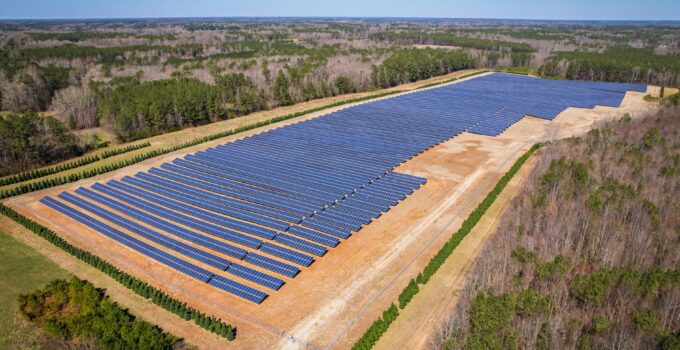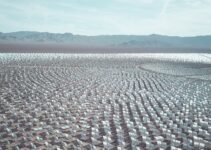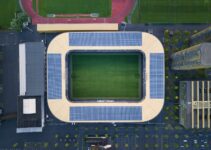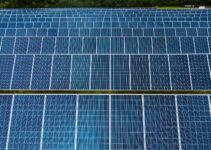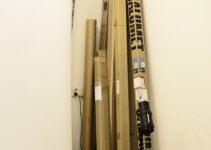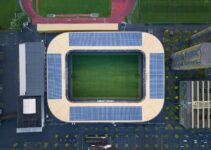Are solar panels really worth the investment? This is a question that many homeowners ask themselves when considering renewable energy options. While solar panels may seem like a great way to save money and reduce your carbon footprint, they may not be as beneficial as they appear.
In this article, we will debunk the myth that solar panels are worth it and explore the various reasons why they may not be the best choice for everyone.
Understanding the True Cost of Solar Panels
One of the main reasons why solar panels may not be worth it is the high upfront cost. While the prices of solar panels have decreased over the years, the initial investment can still be substantial. On average, the cost of installing solar panels can range from $15,000 to $25,000 for a typical residential system.
Additionally, many homeowners are unaware of the hidden costs associated with solar panel installation. These costs include permits, inspections, wiring upgrades, and maintenance fees. When considering the true cost of solar panels, it is important to factor in these additional expenses.
Furthermore, the return on investment for solar panels is not guaranteed. It can take several years to recoup the initial investment through energy savings. Depending on your location and energy usage, it may take 10 to 20 years or more to break even.
Exploring the Drawbacks of Solar Panel Installation
While solar panels may seem like a great way to generate clean energy, there are several drawbacks to consider. One major drawback is the limited efficiency of solar panels. Solar panels are dependent on sunlight, which means their output can fluctuate depending on weather conditions and the time of day. This can result in inconsistent energy production and may not meet your energy needs during certain periods.
Another drawback is the physical space required for solar panel installation. Not every home has sufficient roof space or land area to accommodate an efficient solar panel system. Additionally, shading from nearby trees or buildings can further reduce the effectiveness of solar panels.
Furthermore, solar panels may not be aesthetically pleasing to everyone. Some homeowners may find the appearance of solar panels unattractive and may not want them visible on their property.
Examining the Long-Term Maintenance Expenses
While solar panels are often touted as a low-maintenance energy solution, they still require regular maintenance to ensure optimal performance. This maintenance can add up over time and may result in additional expenses.
Common maintenance tasks for solar panels include cleaning, inspecting for damage, and monitoring energy production. If the panels become dirty or obstructed by debris, their efficiency can be significantly reduced. Cleaning the panels or hiring a professional to do so can be an added cost.
In addition, solar panels have a lifespan of around 25 to 30 years. After this time, they may need to be replaced or repaired, which can be a significant expense. It is important to consider the long-term maintenance expenses when assessing the overall cost-effectiveness of solar panels.
Unveiling the Limitations of Solar Panel Efficiency
While solar panels are a renewable energy source, their efficiency is not as high as some other energy options. The average efficiency of solar panels currently available on the market is around 15-20%. This means that only a portion of the sunlight that hits the panels is converted into usable electricity.
Additionally, solar panel efficiency can be affected by factors such as temperature and shading. High temperatures can decrease the efficiency of solar panels, and shading from trees or buildings can reduce their output even further. These limitations can impact the overall performance of solar panels and may not make them as efficient as initially expected.
Considering the Environmental Impact of Solar Panel Production
While solar panels are seen as an environmentally friendly energy solution, their production process can have a negative impact on the environment. The manufacturing of solar panels involves the use of various materials and chemicals, some of which can be harmful if not properly disposed of.
Furthermore, the production of solar panels requires a significant amount of energy, which often comes from non-renewable sources. This means that the environmental benefits of using solar panels may be offset by the carbon emissions produced during their manufacturing process.
It is important to consider the full life cycle of solar panels when assessing their environmental impact. While they may produce clean energy during their operational phase, the production and disposal of solar panels can have a negative effect on the environment.
Alternative Energy Sources that May Be More Cost-Effective
Considering the drawbacks and limitations of solar panels, it is worth exploring alternative energy sources that may be more cost-effective. One such option is wind energy. Wind turbines can generate electricity with high efficiency and can be a good alternative in areas with consistent wind patterns.
Another alternative is geothermal energy, which harnesses the heat from the earth to generate electricity. Geothermal systems have a long lifespan and can provide a stable source of clean energy.
Biomass and hydroelectric power are also viable alternatives to solar panels. Biomass energy utilizes organic matter to produce electricity, while hydroelectric power harnesses the energy of flowing water to generate electricity. These alternatives can offer a more reliable and cost-effective solution for homeowners.
Frequently Asked Questions
Are solar panels worth the investment?
While solar panels can provide some benefits, there are several factors to consider before investing. The upfront cost, maintenance expenses, and limitations of solar panel efficiency may make them less worth it for some homeowners.
How long does it take to break even on solar panels?
The time it takes to break even on solar panels varies depending on factors such as location, energy usage, and the cost of electricity. It can take 10 to 20 years or more to recoup the initial investment through energy savings.
Can solar panels save me money on my energy bills?
Solar panels can help reduce your energy bills, but the extent of the savings depends on various factors. Factors such as the cost of electricity, your energy usage, and the efficiency of your solar panel system will determine the amount of money you can save.
What are the alternatives to solar panels?
There are several alternatives to solar panels, including wind energy, geothermal energy, biomass energy, and hydroelectric power. These alternatives offer different benefits and may be more cost-effective depending on your location and energy needs.
Expert Advice
When considering whether solar panels are worth it, it is important to assess your specific situation. Factors such as your location, energy usage, and budget will play a significant role in determining whether solar panels are a viable option for you. Consulting with a renewable energy expert can provide valuable insights and help you make an informed decision.
In conclusion, while solar panels have their benefits, they may not be worth the investment for everyone. The high upfront cost, long-term maintenance expenses, limitations of efficiency, and environmental impact are all factors to consider. Exploring alternative energy sources and seeking expert advice can help you make a decision that aligns with your needs and goals.
